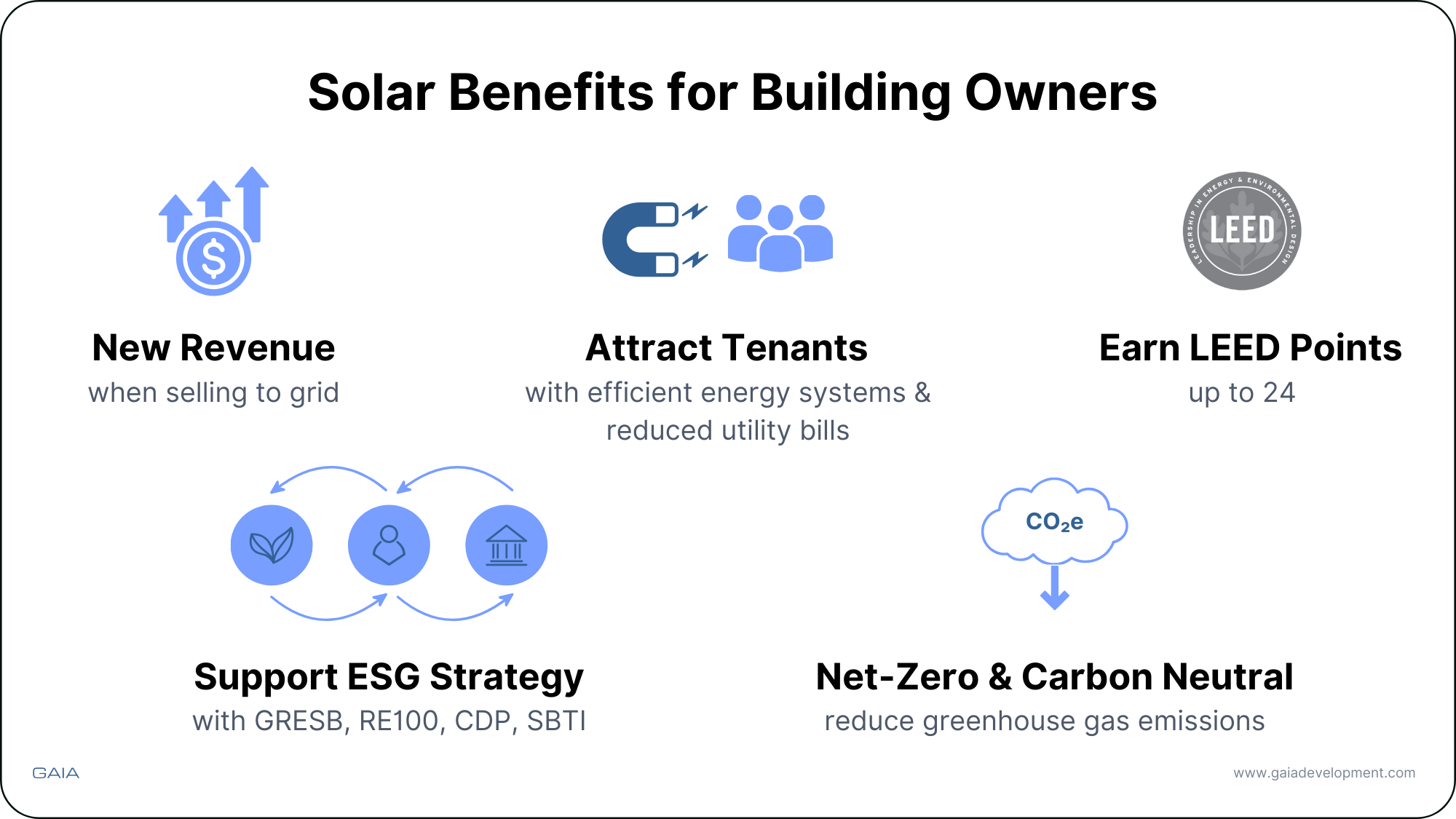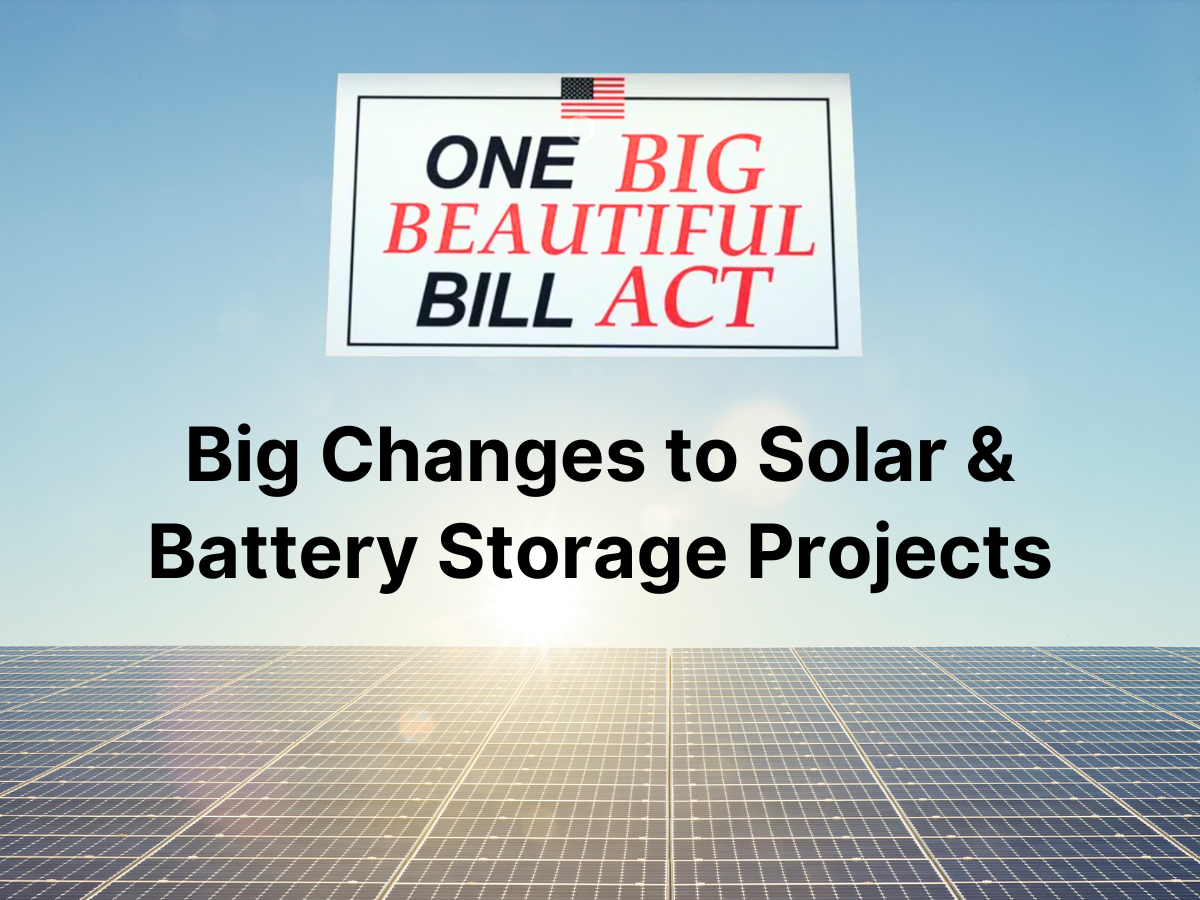Value of Hiring a Solar Owner Rep
A solar owner's representative (also known as Solar Owner Rep or Solar Owner’s Rep) is a building owner’s right hand, guiding them through the process and ensuring a successful solar energy project.
They act as your advocate, knowledgeable advisors, and project coordinators, offering expertise in solar energy systems, managing solar vendor RFPs, ensuring the best rates, and helping you maximize the value of solar for your property.
Expertise of a Solar Owner Rep: What do they do?
✔️ Energy Strategy
✔️ Technical and Financial Analysis
✔️ Returns Through Scale
✔️ Simplified Project Management
✔️ Risk Mitigation & Quality Assurance
✅ Expert Guidance and Tailored Solutions
Our team specializes in solar energy systems, encompassing design, installation, and operation. We closely collaborate with you to understand your unique requirements and objectives. With extensive experience in individual projects and portfolios, we stay up-to-date with the latest technologies, best practices, and local regulations.
✅ Financial Analysis and Maximized Savings
Solar projects often require significant upfront investment but offer long-term financial benefits. A solar owner's rep conducts a thorough financial analysis, considering project costs, potential savings on electricity bills, available incentives, and return on investment. This analysis helps you make informed decisions about the financial viability of the project and the potential long-term value it can bring to your building.
✅ Streamlined Process and Seamless Integration
Our standardized bid questions, unbiased 3rd-party reviews, and commissioning saves you time and effort. We also take in design elements and architectural considerations to ensure the solar system enhances your building's visual appeal.
✅ Verification and Risk Mitigation
We conduct rigorous quality control, including regular inspections, and work with reputable vendors to mitigate potential equipment failure or suboptimal performance. We aim to ensure your solar system operates reliably and delivers the expected energy production.
Case Study
Watson Land Company (WLC) Building 831 in Chino, California and WLC Headquarters in Carson, California both leverage solar to reduce total energy use up to 40%. Renewable energy is an essential part of a high-performance strategy coupled with high-efficiency systems such as HVAC, lighting, and controls. GAIA was the Sustainability Consultant for WLC’s portfolio, providing solar consulting services back in 2015.
Thinking of Adding Solar?
The value of incorporating solar into a building cannot be overstated. Solar offers financial, environmental, and competitive advantages to building owners, developers, and tenants.
By harnessing the power of the sun, the building generates its own clean and renewable energy, resulting in substantial savings on utility bills over the long term.
This not only aligns with energy efficiency needs but also sustainability goals set forth by governments, positioning the building as a responsible, attractive (and code compliant) asset in today's market.
Bridge Point Oakland, Oakland, California achieved LEED Gold and 32% energy savings with solar energy • Photo credit: Herdman Architecture and Design • GAIA served as the Sustainability Consultant.
Benefits of installing solar on your building:
- Solar energy can generate additional revenue when electricity is sold to the grid.
- Solar often produces higher rent while tenants benefit from lower utility rates due to increased energy efficiency.
- Earn up to 24 LEED points.
- Solar earns GRESB points and aligns with RE100, CDP, and SBTI.
- Solar eliminates the need for fossil fuel-based energy, reducing greenhouse gas emissions and providing a pathway to achieve net-zero and/or carbon neutral.
Solar carports serve multiple purposes: energy efficiency, cooling shade for cars and people when they arrive/depart, and aesthetically featuring investment in clean, renewable energy. GAIA is the Sustainability Consultant for Highland Fairview’s World Logistics Center in Moreno Valley, California.
Overview of GAIA’s Scope of work:
1. Design Review
Goals: Support owner to understand and establish goals.
Energy Load: Review and model energy load; evaluate current/future equipment.
Solar Size: Establish solar size kW and annual kWh to meet owner's needs.
Review Design, Specs and Equipment: Assess roof design and specifications, electrical room and equipment design, and proposed switchgear and capability of the current design.
ROM: Provide a rough order of magnitude/estimation of the solar layout.
2. Bid Package
Create Standardized Bid Package: Meets customer goals and attains competitive pricing on: size, generation, equipment standards, scope breakdown, schedule, PPA rates and increases, warranties, exclusions, vacancy risk, and shines light on the fine print.
RFP Coordination: Provide documentation, transparency, and clear communication with stakeholders and vendors to ensure a successful outcome.
Evaluate Bid Responses: With a standardized economic comparison, assess vendor qualifications, proposed equipment quality and reliability, milestones, design, scheduling, and warranties.
Support Hiring Process: Set-up interviews and assist in selecting vendors.
3. Bid Award, Installation, and Operation Support
Review Contract and Verify Schedule: Assure design meets owner's goals and verify schedule for permitting.
Coordination: Facilitate collaboration between subcontractors and the owner for a smooth integration process of different components and subsystems.
Audit Installation: Verify proper installation (commissioning) and inspector sign-off.
Create Marketing Materials: Provide graphics with stats on energy production and carbon offsets.
3– and 9– Month Verification: Inspect system performance and billing accuracy for tenant and owner.
GAIA vs. Others
Photovoltaics (PV) rooftop system at Avion Burbank in Los Angeles, California offsets 18% of the project’s annual energy consumption. With 27 buildings, that’s a lot of savings!
Prologis – Home Depot Distribution Center uses solar energy to achieve 92% cost savings. The smart industrial building is located in Irwindale, California and achieved LEED Platinum with GAIA as the Sustainability Consultant. Photo Credit: Prologis











